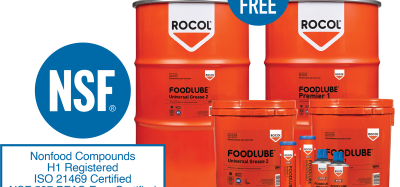New treatment could prevent anaphylactic reactions
- Like
- Digg
- Del
- Tumblr
- VKontakte
- Buffer
- Love This
- Odnoklassniki
- Meneame
- Blogger
- Amazon
- Yahoo Mail
- Gmail
- AOL
- Newsvine
- HackerNews
- Evernote
- MySpace
- Mail.ru
- Viadeo
- Line
- Comments
- Yummly
- SMS
- Viber
- Telegram
- Subscribe
- Skype
- Facebook Messenger
- Kakao
- LiveJournal
- Yammer
- Edgar
- Fintel
- Mix
- Instapaper
- Copy Link
Posted: 23 August 2022 | New Food | No comments yet
A new treatment could prevent hypersensitive consumers from having dangerous anaphylactic reactions if they consume an allergen by replacing important gut bacteria.


Although many people with dietary allergies experience mild symptoms when exposed to triggering foods, some face potentially fatal consequences as a result of anaphylactic reactions. A bacterial compound called butyrate that’s made by healthy microbiomes has shown promise against allergic reactions in lab tests, but it’s not nice to take orally.
But now scientists at the University of Chicago are working on a more palatable way to deliver this compound and report that their “polymeric micelles” are effective against peanut allergies in mice. The treatment could someday counteract many types of food allergies and inflammatory diseases.
Some of the bacteria in the gut microbiome produce metabolites, such as butyrate, that foster the growth of beneficial bacteria and maintain the lining of the gut. If a person’s microbiome is unhealthy and lacks these butyrate-producing bacteria, fragments of partially digested food can leak out of the gut and produce an immune reaction that results in an allergic response, and potentially anaphylactic shock.
One way to treat those with allergies would be to provide the missing bacteria to them orally or with a faecal transplant, but that hasn’t worked well in the clinic, according to Jeffrey Hubbell, PhD, one of the project’s principal investigators. “So we thought, why don’t we just deliver the metabolites — like butyrate — that a healthy microbiome produces?”
“But butyrate has a very bad smell, like dog poop and rancid butter, and it also tastes bad, so people wouldn’t want to swallow it,” added Shijie Cao, PhD. Even if people could consume it, butyrate would be digested before reaching its destination in the lower gut.
To overcome these challenges, the researchers, including co-principal investigator Cathryn Nagler, PhD, and Ruyi Wang, PhD, designed a new delivery system. They polymerised butanoyloxyethyl methacrylamide — which has a butyrate group as a side chain — with methacrylic acid or hydroxypropyl methacrylamide. The resulting polymers self-assembled into aggregates, or polymeric micelles, that tucked the butyrate side chains in their core, thus cloaking the compound’s foul smell and taste.
The researchers administered these micelles to the digestive systems of mice lacking either healthy gut bacteria or a properly functioning gut lining. After digestive juices released the butyrate in the lower gut, the inert polymers were eliminated in the faeces. The treatment restored the gut’s protective barrier and microbiome, in part by increasing production of peptides that kill off harmful bacteria, which made room for butyrate-producing bacteria.
Most importantly, dosing allergic mice with the micelles prevented a life-threatening anaphylactic response when they were exposed to peanuts. “This type of therapy is not antigen specific,” Cao noted. “So theoretically, it can be broadly applied to any food allergies through the modulation of gut health.”
Next up are trials in larger animals, followed by clinical trials. If those trials succeed and the US Food and Drug Administration (FDA) approves the oral treatment, the micelles could be marketed in small packets; consumers would tear open a packet and stir the contents into a glass of water or juice. In other work with the micelles, the team is analysing data on treating inflammatory bowel diseases with the oral therapy.
The team is also investigating administration via injection. The researchers have shown that this method allows the micelles and their butyrate cargo to accumulate in lymph nodes, which are part of the immune system. They found that this approach is effective in treating peanut allergies in mice, but it could also be used to suppress immune activation locally — rather than throughout the body. For example, injections could be helpful in patients who have had an organ transplant or who have a localised autoimmune and inflammatory condition, such as rheumatoid arthritis.
Related topics
Allergens, Food Safety, Research & development, The consumer








